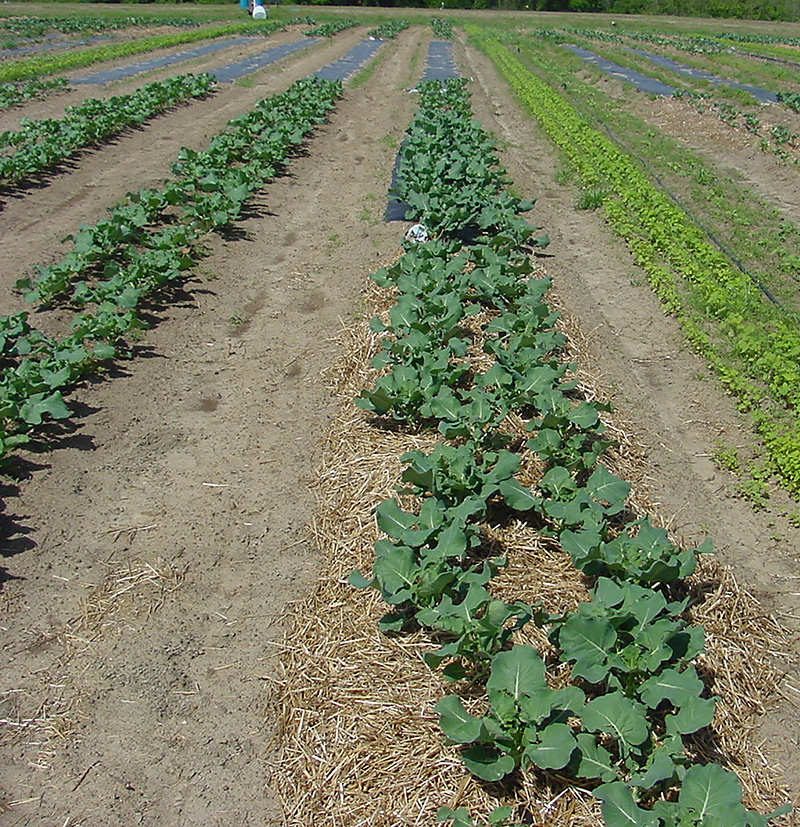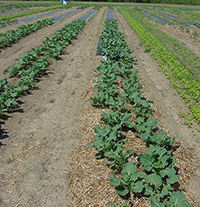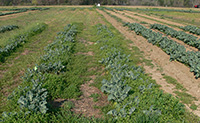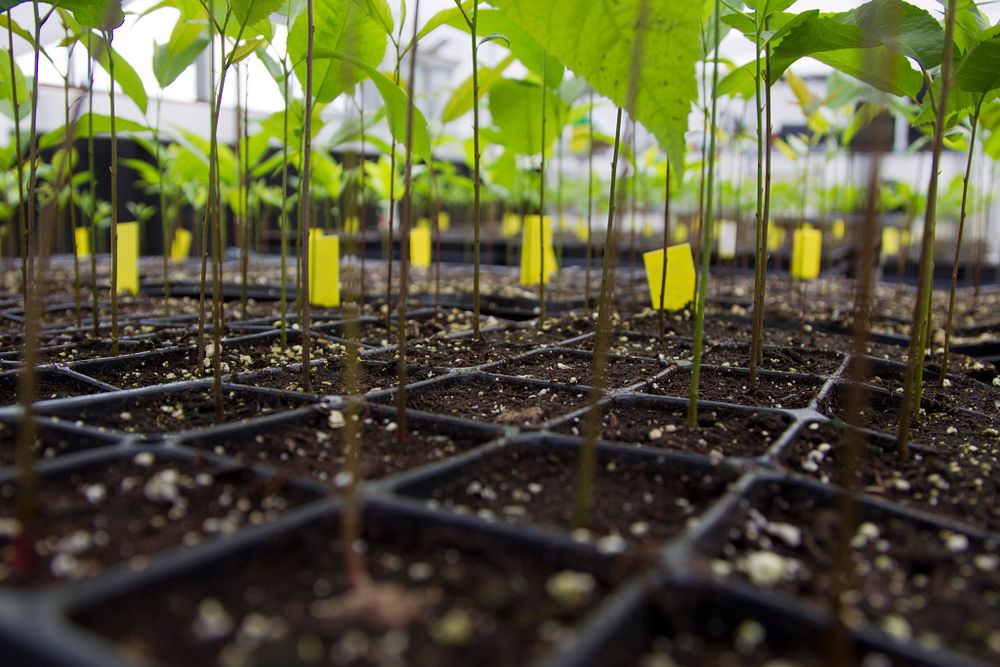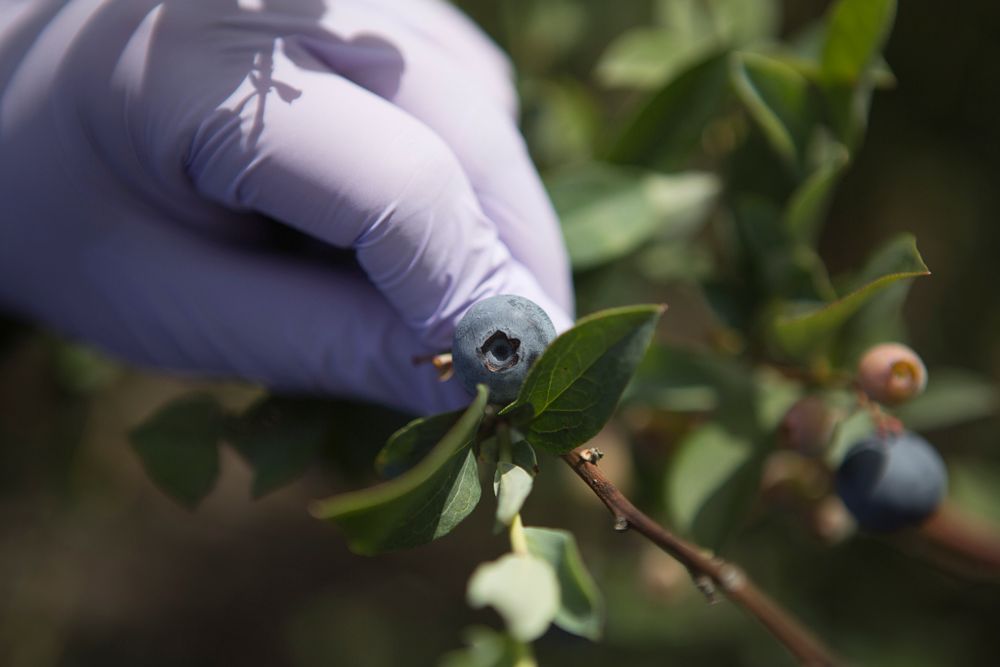If they start now, Georgia organic farmers can use mulch and cultivation to manage young weeds, according to Juan Carlos Diaz-Perez, vegetable scientist on the University of Georgia Tifton campus. If weeds are not controlled successfully and are allowed to grow throughout May and June, they can compete with crops for nutrients, water and sunlight.
“In organic management, you don’t have access to many weapons for weed control. You have to make use of prevention,” Diaz-Perez said. “With weed management, the younger the weed is, the easier it is to control it. The younger your crop is and the more it is allowed to have weeds as competitors, the more damage weeds will inflict on the crop. Usually our crops are most susceptible to weeds when they are young.”
In traditional farming practices, growers normally apply herbicides throughout the year to kill weeds without damaging the crop.
Because organic farmers do not use chemical means to control weeds, they can use alternative methods throughout the growing season, according to Diaz-Perez. Practices such as cultivation with a tractor or hoe, hand-pulling weeds and using organic mulches or plastic film mulches serve as effective weed control measures.
Diaz-Perez recommends organic mulches, like wheat or pine straw, because they can reduce weed growth significantly, allow the rain to penetrate the soil, and they are sustainable. Organic mulches decompose, providing organic matter to soil and nutrients to microbes, and don’t add pollution to the soil like plastic.
Diaz-Perez devotes 30% of his research to organic crop production at UGA-Tifton.
“When weeds are allowed to grow too much, their degree of development makes their control impractical. Weeds have to be controlled when they are small and tender. Removing those weeds that were not controlled during their younger stage of development makes for an expensive and time-consuming effort on the part of organic farmers,” Diaz-Perez said. “Weed control is the most important factor when producing a crop organically. Weeds have to be controlled if the crop is going to do well.”
To learn more about the use of mulches in vegetable production, see UGA Extension Circular 984, “Mulching Vegetables,” at extension.uga.edu/publications.

